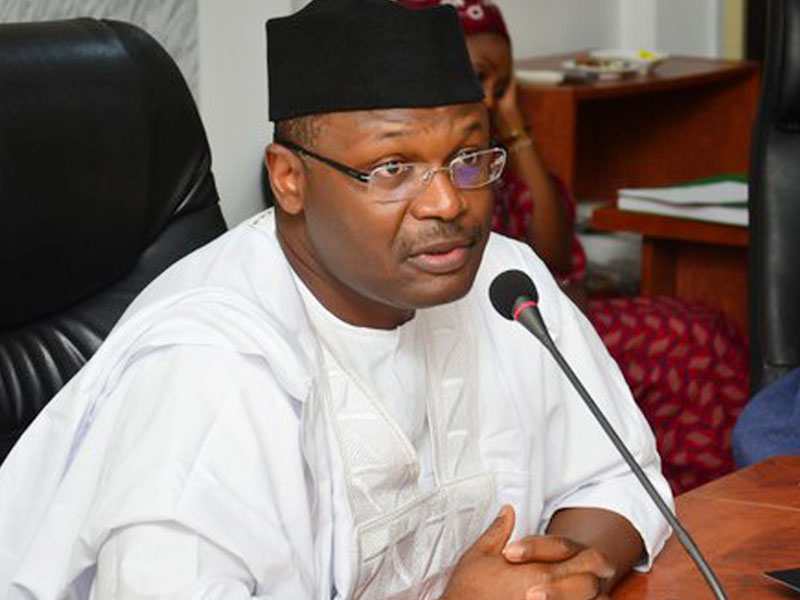The United Nations (UN) has lamented the high number of political parties in Nigeria, saying it hinders the electorate from making informed decisions.
This came to the fore Thursday when the Special Representatives of the Secretary General and Head of the United Nations Office for West Africa, Mohammed Ibn Chambas paid a courtesy call on Chairman of the Independent National Electoral Commission (INEC), Prof. Mahmood Yakubu, in Abuja.
Chambas, who said that the UN was interested in participating in INEC’s review of the 2019 General Election, however lamented that the number of political parties “distracts from the quality of the (electoral) process.”
The UN representative noted that some people referred to the ballot paper during the last general election as “table cloth” on account of its length.
He said, “So, we came here seeking to be part of that conversation going forward and we will particularly be interested in a number of issues, such as the number of political parties, mode of registration, internal democracy and accreditation of party agents which the chairman of INEC himself has already identified.
Read Also: “Igbo presidency doesn’t exist” – Okorocha says, gives reasons
“The number of political parties in certain elections in our West Africa and Sahel sub-region has posed a challenge recently and it is not only here in Nigeria that we need to look at the issue of number of political parties and their mode of registration.
“Recently in Senegal, this same challenge was faced; they have found their manner of dealing with it. Next door in the Republic of Benin, when they were confronted with as many as 249 registered political parties, they have also tried to find their way to handle this issue.
“In the last elections in Nigeria, many of you will recall that there were 73 presidential candidates. I am not talking about registered political parties but presidential candidates. With the usual Nigerian people, some people even referred to the ballot paper as tablecloth on account of its length and breadth.
“Of course, that also has its own challenges and for countries in our sub-region, presenting them with such long list of candidates sometimes distracts them from the quality of the process and informed decisions by the electorate.
“So, these are legitimate issues that we want to be part of this conversation that has been initiated by the INEC chairman.
“The UN wants to be part of that preparation. We want to always see in what way we can be useful. How can we support, how can we facilitate, how can we be part of the process which strengthen capacity of INEC to better deliver in future elections?”
Responding, the INEC chairman blamed the 8th National Assembly for fuelling the controversy that led into President Muhammadu Buhari not signing the Electoral Act (Amendment) Bill, noting that the signing of the bill would have addressed some of the challenges faced during the 2019 polls.
Yakubu said that having taken cognisance of the need for electoral reforms ahead of the last general elections, INEC submitted detailed proposals for the amendment to the nation’s electoral laws to the National Assembly.
He noted that both chambers of the assembly delayed the passage of the bill.
“We look forward to any suggestions that you may have for improving the electoral process in Nigeria as we prepare for future elections. In particular, we need to focus attention on the electoral legal framework among several areas of reform,” Yakubu told Chambas,

